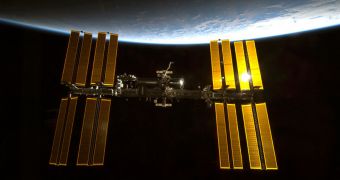Good news for the space agencies involved in the International Space Station project. Officials with the NASA and the White House, in the United States, have just announced plans to support the operations of the largest spacecraft ever built until at least 2024.
This represents a 4-year extension from the previous extension, adopted just a few years ago, which held that the ISS should continue operations until 2020. Originally, the station was supposed to be used until the middle of this decade, but delays in its construction made experts reconsider this plan.
It took more than 11 years and roughly $100 billion (€73.5 billion) to construct the space laboratory, which is the largest single spacecraft in human history. Plans to keep it running until at least 2024 were announced during a teleconference held on Wednesday, January 8, Space reports.
The NASA Chief of Exploration and Human Spaceflight Operations, Bill Gerstenmaier said that this measure would ensure scientists get the maximum benefits and return from this amazing project. The main concern with the ISS is the decay of its oldest modules, experts argue.
“There's some pretty significant benefits in announcing us to go beyond 2020,” Gerstenmaier said during the teleconference. The official also announced that NASA would maintain its funding level of $3 billion (€2.2 billion) per year for the ISS.
Official comments on this decision are expected today or tomorrow from Charles Bolden, the Administrator of NASA, and John Holdren, who is the science advisor for President Barack Obama.
Interestingly, the ISS could get yet another extension, which could see it remain in low-Earth orbit until 2028. This idea was proposed a while back, but mission controllers are still unsure as to how the equipment and materials on the lab will hold up in the harsh conditions of space.
Work on the ISS began in 1998, and was carried out by NASA, the Russian Federal Space Agency (RosCosmos), the European Space Agency (ESA), the Canadian Space Agency (CSA) and the Japanese Aerospace Exploration Agency (JAXA). A total of 15 countries are directly involved in this effort.
Gerstenmaier also said that NASA is interested in acquiring more seats on Russian-built Soyuz spacecraft. Currently, American astronauts can get to the ISS only aboard RosCosmos spacecraft, and the contract between the two agencies that ensures this service expires in 2016.
However, NASA is hopeful that, by that time, private companies such as SpaceX and Orbital Sciences Corp. will finish developing the manned versions of their respective space capsules.

 14 DAY TRIAL //
14 DAY TRIAL //